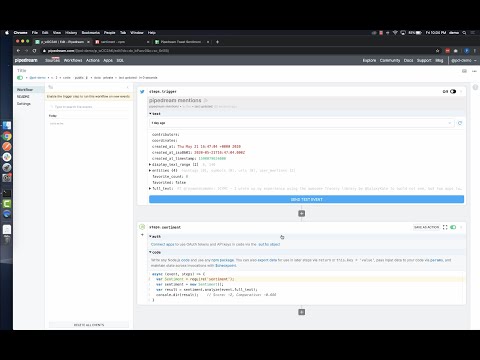What do you want to automate
with Google Sheets and Poof?
Prompt, edit and deploy AI agents that connect to Google Sheets, Poof and 3,000+ other apps in seconds.
Trusted by 1,000,000+ developers from startups to Fortune 500 companies
Popular Ways to Connect Google Sheets with Poof#
Popular Google Sheets and Poof Triggers#
Emit new events when a payment is made in Poof. See the documentation
Emit new event each time a comment is added to a spreadsheet.
Emit new event each time a row or rows are added to the bottom of a spreadsheet.
Emit new event each time a row or rows are added to the bottom of a spreadsheet.
Popular Google Sheets and Poof Actions#
Add a single row of data to Google Sheets. Optionally insert the row at a specific index (e.g., row 2 to insert after headers, shifting existing data down). See the documentation
Creates a new deposit address in Poof. See the documentation
Add multiple rows of data to a Google Sheet. See the documentation
Get all values or values from a range of cells using A1 notation. See the documentation
Overview of Google Sheets#
The Google Sheets API allows for the creation, reading, updating, and deletion of data within Google Sheets, enabling a robust platform for spreadsheet management and data manipulation. Through Pipedream, you can craft serverless workflows that respond to various triggers, such as webhook events, emails, or scheduled times, to interact with Google Sheets. This synergy can automate reporting, synchronize data across applications, manage inventory, track leads in a CRM, or even conduct survey analysis by updating and retrieving sheet data on the fly.
Connect Google Sheets#
import { axios } from "@pipedream/platform"
export default defineComponent({
props: {
google_sheets: {
type: "app",
app: "google_sheets",
}
},
async run({steps, $}) {
return await axios($, {
url: `https://www.googleapis.com/oauth2/v1/userinfo`,
headers: {
Authorization: `Bearer ${this.google_sheets.$auth.oauth_access_token}`,
},
})
},
})
Overview of Poof#
The Poof API lets you schedule and automate emails and SMS messages, making it a powerful tool for communication-based workflows. With Pipedream, you can connect the Poof API to hundreds of other services to craft custom automations. Trigger events, process data, and design complex interactions without managing a server infrastructure.
Connect Poof#
import { axios } from "@pipedream/platform"
export default defineComponent({
props: {
poof: {
type: "app",
app: "poof",
}
},
async run({steps, $}) {
const data = {
"crypto": `bitcoin`,
}
return await axios($, {
method: "post",
url: `https://www.poof.io/api/v2/balance`,
headers: {
"Authorization": `${this.poof.$auth.api_key}`,
"Content-Type": `application/json`,
},
data,
})
},
})
Related Videos#



Community Posts#


